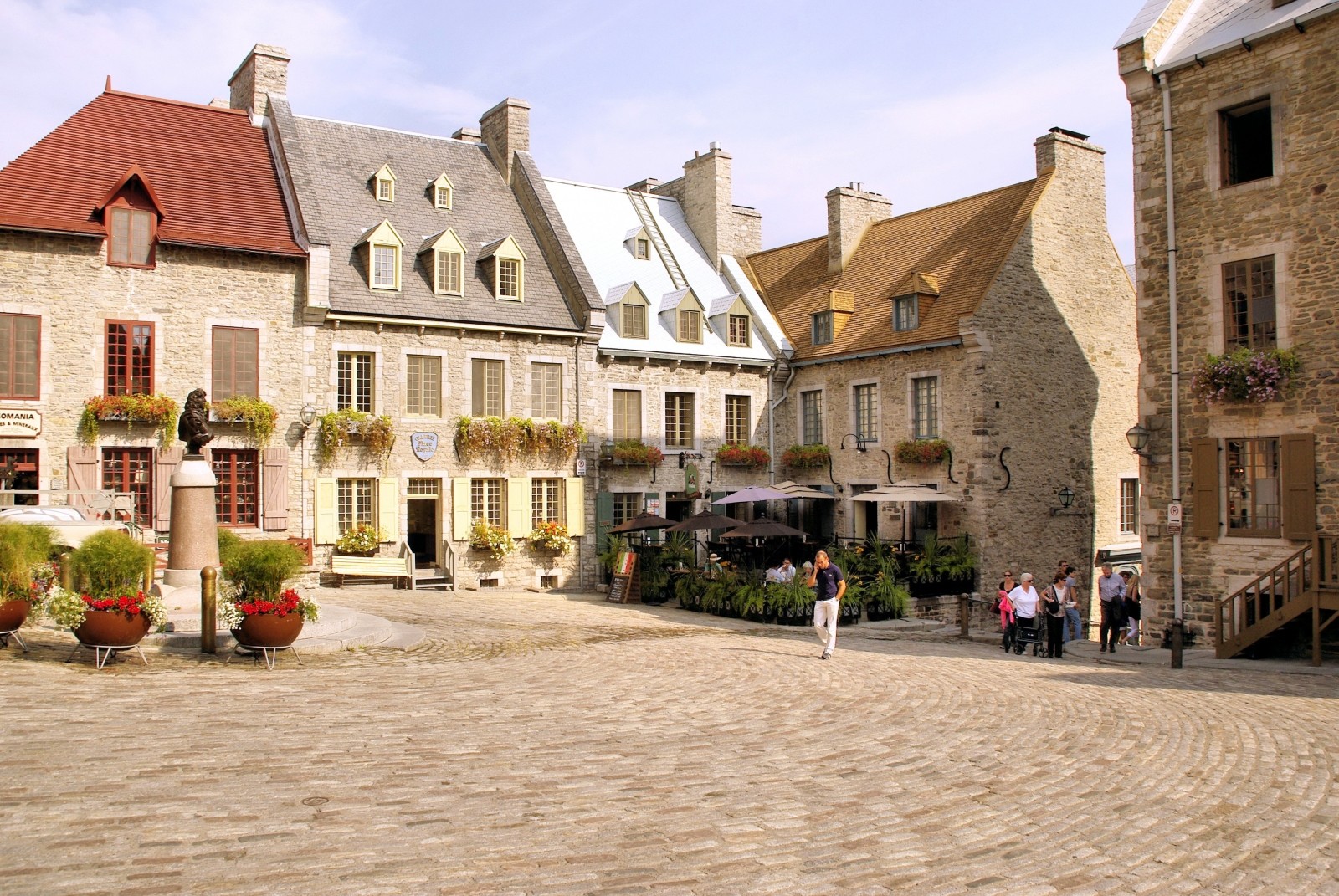September 15, 2016 1 min to read
Québec was colonized by France, Canada by England
Category : Differences, Main Articles, New France
From the very beginning, the people who initially formed Québec were very different from the people who colonized the rest of Canada.
The ancestors of most of the Québecois arrived in Québec from France between 1608 and 1763. My direct paternal ancestor, for example, arrived in 1673, but 90 years later, the flow of French immigrants pretty much stopped.
On the other hand, colonists from England only began to really arrive in Canada after 1763, and that movement didn’t stop until Canada was really established.
This creates 2 distinct periods of migration from 2 very different colonial powers.
Between 1608 and 1763, France was a complete autocracy. The King (Louis XIII 1610-1643, Louis XIV 1643 -1715 or Louis XV 1715 -1774) had almost complete authority over France and its colonies, under a rigid Catholic faith and a civil code system of laws.
Between 1763 and 1867, when Canada was really founded, England already had a Prime Minister and, even if it wasn’t a true democracy, it was very different from France’s autocracy. England not only had a different language, but also a different culture, religion, code of laws and even different colonial objectives.
In 1763, England was more or less unified culturally, but between 1608 and 1763, French wasn’t even really spoken in France outside of the great urban centers.
In a way, we could say that England was trying to colonize the rest of the world, when France was still trying to colonize its own territory, using it’s colonies mainly as commercial ventures.
For example, in 1765, it was estimated that the total number of French settlers in Québec was only 70,000, while the population of the British colonies which later made up the United States in 1760 was already 1,593,625 and had boomed to 2,148,076 in 1770!
Settlers brought with them stories, traditions and values which differed greatly between French and British settlers, not only because of differences between the two countries but also because of differences in the time period that they left their home country.
My ancestors who left Normandy in 1673 lost touch with their remaining family in France, and with developments in stories and culture back home. However, the settlers who arrived from England after colonization had experienced at least 90 more years of European cultural progress before they came to Canada.
*Note, after comments received, this article was edited in November 2019 to replace Great Britain with England.


Comments (4)
-
-
-

-

The number one reason Quebec rejects the 1982 constitution: the amendment rule – What does Quebec Wants? September 16, 2016
[…] by our very nature of having been colonized by a different colonial power, Québec, even before the original constitution of 1867, was different from the other […]
Why are Québécois so angry about the cancelling of French University in Toronto? – What does Quebec Want? December 10, 2018
[…] reason the Québec french-speakers feel solidarity with the French-speakers of Ontario is that the Nouvelle-France did spread to Ontario, and some of us have families in Ontario. My own father in law’s family […]
Richard Pelland January 18, 2019
I think your commentary, while interesting, omits certain elements. It omits the founding of Port-Royal and the colony of Acadia altogether. There were also French settlements in Plaisance NF and in PEI. Furthermore, Ontario was part of New France, so to suggest that Canada outside Quebec was colonized by Britain alone is patently false. Places such as Windsor and Kingston ON find their origins in New France. Moreover, Quebec also received a number of immigrants from the UK and Ireland and their presence is noticeable in the Eastern Townships, the Ottawa Valley, including Pontiac County and areas along the the Ottawa River, and the Magdalene Islands. Both colonial powers and their settlers had a direct impact on Quebec and the eastern provinces.
mpf March 16, 2019
You know, you are 100% right! This article was indeed an hyper simplification of the situation and was written directly for a client in Edmonton (which was indeed colonized by English speakers first).